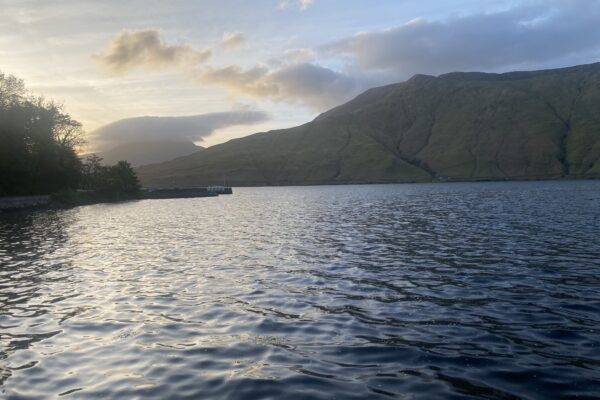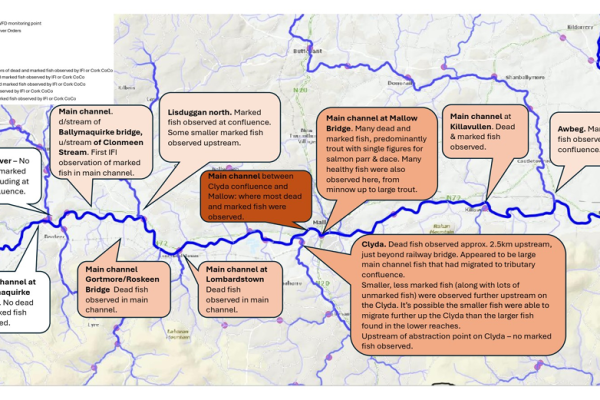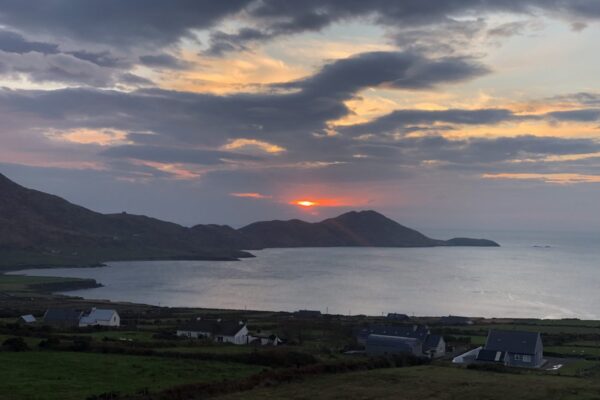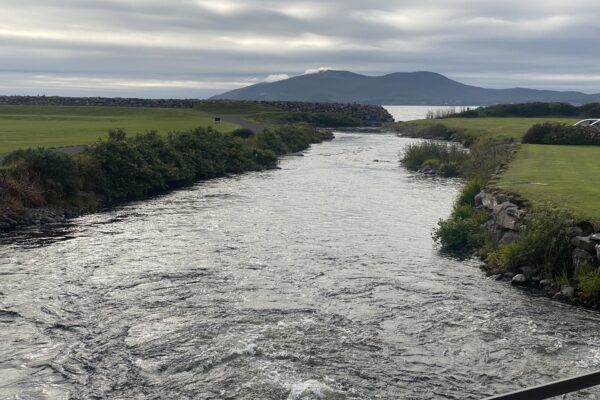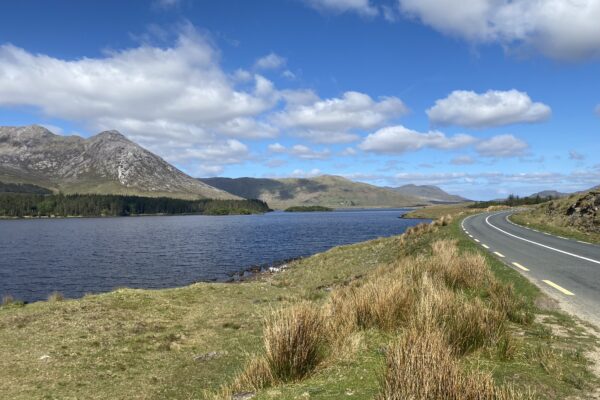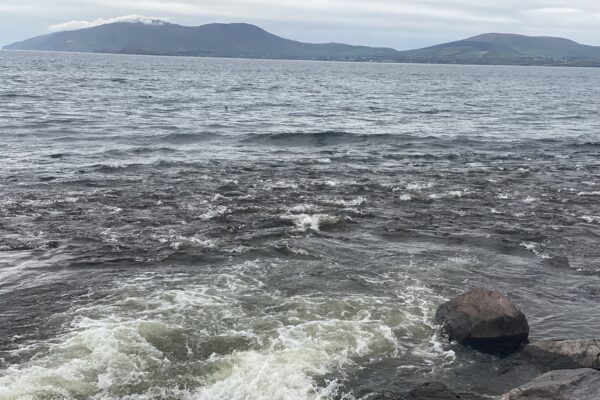-
Newsletter Number 29 – 30 January 2025
The newsletter opens with an overview of a recent Canadian federal court ruling on salmon aquaculture, which confirmed the right of governments to act decisively and precautionarily in defence of wild salmon, even where such decisions carry significant economic consequences. This case provides a timely and relevant international context for policy and regulatory decisions now facing Ireland. The article then turns to domestic matters, including the proposed Wild Salmon and Sea Trout Tagging and Conservation Regulations, the scientific rationale for strengthened probability thresholds at Conservation Limit, the treatment of rivers assessed as having no exploitable surplus, and the implications of departing from established scientific and management advice. It also addresses the management of recreational exploitation, the protection of early-running fish, and Ireland’s obligations under EU conservation and Nature Restoration law. The intention of the newsletter is to contribute constructively to ongoing discussion by setting out the conservation, governance, and legal context in a clear and accessible way, while emphasising the need for evidence-led, precautionary decision-making in the face of continued stock decline. I hope you find it useful and informative, and I look forward to further engagement on these issues.
Continue reading -
Newsletter – Number 21-Blackwater Report
Today we’re sharing Salmon Watch Ireland’s Blackwater Report (Sept 2025). It summarises the Inter-Agency investigation into the August fish mortalities on the Munster Blackwater and sets out what must happen next. While we appreciate the efforts of all agencies and stakeholders it is none the less alarming that no definitive cause was identified. Whether this was the result of investigation taking too long to sample critical parameters or that event had occurred days before and had become non-detectable it should serve as a call to action by all to monitor and protect water quality. While we appreciate calls to actively restock these areas affected by the kill, we would suggest that natural recolonisation might be a better long term solution. What’s inside Up to 32,000 salmon and trout lost; oxygen levels normal; no single toxin identified. Macroinvertebrates rated Q4–Q5 (Good–High), pointing to a short-lived irritant — but on top of chronic nutrient enrichment. Strong enforcement measures urged, including indictment and licence suspension for persistent polluters, plus continuous monitoring of all discharges. Calls to reform the nitrates derogation, deploy real-time sensors, and build Irish lab capacity for pollutant & algal toxin testing.
Continue reading -
Salmon – Are Mackerel an Issue
The Expansion of Northeast Atlantic Mackerel and Its Potential Impacts on Atlantic Salmon Introduction Since the mid-2000s, Northeast Atlantic mackerel (Scomber scombrus) have undergone a major northward and westward expansion, with large feeding migrations into Faroese, Icelandic, and Greenlandic waters. This shift has reshaped fisheries and sparked disputes among coastal states, but it may also have important ecosystem consequences — particularly for Atlantic salmon (Salmo salar), whose marine survival has declined dramatically over a long time period but has reached new lows consistent with timing of these fisheries and change in ocean ecosytem. Mackerel catches by country ICES data show how mackerel catches shifted after 2005. Norway has long been the dominant harvester, but Iceland, the Faroe Islands, and later Greenland developed large fisheries once mackerel began occurring in their zones. Russia also maintains a sizeable fishery. Expansion into feeding areas The rise in catches by Iceland, Greenland, and the Faroes reflects the northward and westward shift of the stock’s summer feeding distribution. Once concentrated in the North Sea and Norwegian Sea, mackerel have become abundant as far west as East Greenland. However this trend appears to be reversing with a trend of distribution coming back towards more normal areas. Also stock size is declining with ICES choosing to recommend large reductions in quota. Ecological overlap with salmon Atlantic salmon smolts leaving rivers in Norway, UK, and Ireland migrate into the Norwegian Sea and areas adjacent to feed during their first summer at sea. This is the region where mackerel have expanded and increased in biomass in recent decades. Both salmon post-smolts (Directly and Indirectly) and mackerel, along with other pelagic species, depend on copepods especially cold-water copepods whose abundance has declined in much of the area due to ocean warming. This creates strong potential for food competition. An often-overlooked aspect is not only the biomass of zooplankton, but also their energy density (calorific content), which directly affects the availability of larval fish and indeed other species and underpins the structure of the entire ecosystem. The combination of record-high mackerel biomass since the mid-2000s and declining prey quality and quantity may help explain why salmon survival at sea has fallen to historic lows. Today’s post-smolt feeding grounds are markedly less productive compared with earlier periods, when zooplankton were more energy-rich and plentiful. On top of this, the growth of large industrial pelagic fleets likely adds further pressure — not only through occasional salmon bycatch, but also by significantly altering food-web dynamics in these critical feeding areas. Management implications Fisheries: Without an agreed TAC, coastal states’ unilateral quotas have pushed catches well above ICES advice, averaging ~40% higher since 2010. This is now subject of agreed quotas but is still too large and is probably not controlled properly in international waters. Ecosystem: Heavy exploitation of prey resources by abundant pelagic fish (mackerel, herring, blue whiting) could reduce salmon growth and survival, with consequences for both wild populations and fisheries. Climate change: Continued warming is expected to reduce richness of resources, intensifying the competition. This is probably the largest challenge. Salmon from Ireland may now have to migrate further to gain sufficiant feeding. Conclusion The northward and westward expansion of mackerel is not just a fisheries management challenge but an ecosystem concern. The overlap of mackerel with salmon feeding areas, combined with declining zooplankton, provides a plausible mechanism for the observed collapse in salmon marine survival. Addressing this requires: Stronger international quota agreements to keep mackerel harvests within ICES advice. This may reduce Bycatch. Reporting of salmon in bycatch has been agreed but information must be relevant not just that salmon were taken. Location, weight, size and condition of fish should be reported. Integrated ecosystem monitoring of zooplankton, pelagic fish, and salmon. Recognition that salmon declines cannot be solved by freshwater measures alone — the marine ecosystem is central. In conclusion it must be accepted that we must do all we can to revitalise freshwater systems but the substantial effect of climatic change on ocean productivity may be largely responsible for declines. Directly- Change to ecosystem productivity. Indirectly- Expansion of valuable stocks of pelagics may have increased bycatch of salmon.
Continue reading -
Kilkieran Bay Submission – Newsletter
Salmon Watch Ireland Submission – Kilkieran Bay Aquaculture Licence Review (July 2025) This submission from Salmon Watch Ireland strongly opposes the renewal and review of aquaculture licenses for salmon farming in Kilkieran Bay, County Galway, by Bradan Beo Teoranta (BBT). It argues that the application and its supporting environmental documentation fail to meet the legal and scientific standards required under Article 6(3) and 6(4) of the EU Habitats Directive, the EIA Directive, and recent relevant High Court judgments.
Continue reading -
Salmon Watch Ireland notes the recent online discussions regarding the by catch of salmon by industrial scale pelagic fisheries. We certainly agree that these pelagic fisheries are not being fished in a sustainable manner and the prospect of significant bycatch is certainly cause for concern.
Continue reading -
Newsletter Number 16 – 02 July 2025
Latest News on two submissions from Salmon Watch Ireland - Farms in Bantry Bay and Mulroy Bay. Appeal to Inland Fisheries Ireland to engage in real time management of salmon stocks this year due to serious decline across country.
Continue reading -
Newsletter Number 15 – 12 June 2025
NASCO – SALMON AT CRISIS LEVEL SALMON SURVIVAL STRESSOR ANALYSIS - IRELAND APPEAL FOR VOLUNTARY MEASURES CONSERVATION OF SALMON
Continue reading -
NASCO – Press Release
Wild Atlantic Salmon in Crisis: Urgent Action Needed Wild Atlantic salmon are in serious trouble. Across the northern hemisphere, their numbers are falling fast. The North Atlantic Salmon Conservation Organization (NASCO) is the only intergovernmental body with the remit to protect these fish. NASCO brings together countries to work on conserving, restoring, and managing wild Atlantic salmon. At NASCO’s recent Annual Meeting in Cardiff from 3 – 6 June 2025, 22 accredited environmental NGOs joined the discussions and played a key role in shaping future plans. The Alarming Reality Experts at the meeting delivered stark warnings: The International Council for the Exploration of the Sea (ICES) reported that in 2023 and 2024, most countries saw record-low numbers of salmon returning to their rivers. The lack of recovery across the North Atlantic points to major environmental pressures in the ocean that are harming salmon on a large scale. Two upcoming scientific studies are expected to reveal that wild salmon populations are being genetically weakened by interbreeding with farmed salmon This “introgression” is seen as one of the biggest threats to wild salmon survival and its ability to adapt to climate change and other environmental pressures. Recognising Positive Steps Despite the grim news, there were some bright spots: Greenland has successfully reduced its catch to below agreed limits, helping protect wild salmon that migrate from Europe and North America to feed in its waters, before returning home to spawn Norway has made major progress in eradicating the deadly parasite Gyrodactylus salaris from 48 of its 54 infected rivers 3 . NGOs Call for Stronger Action Throughout the meeting, NGOs pushed hard for NASCO to raise its ambitions. They argued that the strategic goal of merely “slowing the decline” of wild salmon is not enough. They were very disappointed that NASCO did not show capacity to change this goal based on the latest ICES report. Robert Otto from Atlantic Salmon Federation, co-Chair of NGO group, said: “If ever there was a time for urgent action to save Atlantic salmon, it is now. We hoped NASCO would exhibit the leadership of the moment and respond commensurately to the challenge before the NASCO attendees collectively.” Nils Olav Gjone, Norwegian Salmon Rivers, co-Chair of NGO group, said: “As NGOs, we’re not idealists—we’re scientists and fisheries experts. We understand the scale of the challenge ahead to restore thriving wild salmon populations. We will continue to work to reverse the decline of this magnificent fish across the North Atlantic.” John Murphy, Salmon Watch Ireland said: "Atlantic salmon in Ireland are facing a devastating and critical decline, and we are at a pivotal moment. This is a time for all stakeholders—communities, anglers, policymakers, environmental groups, and commercial fishers —to reflect on our collective role in safeguarding this iconic species. Moving forward, we must prioritise conservation over exploitation and work together to implement effective, sustainable solutions. We are confident that, united by a common purpose, the majority will choose to do the right thing." Looking Ahead with Determination NGOs remain committed to the cause. They will continue their own conservation action across the North Atlantic and advocate for stronger protections. They also pledged to support each other more closely and show the leadership needed to turn the tide for wild Atlantic salmon. The goal is clear: to restore thriving wild salmon populations at the heart of healthy, biodiverse ecosystems. It will take urgent, transformative action, which must start now.
Continue reading -
Issue Number 14 – 30 May 2025 Salmon Watch Ireland
This week we deal with the highly anticipated paper by Gargan et al. 2025 which effectively deals a significant blow to the government accepted (Marine Institute) science regarding the impact of sea lice on migrating juvenile salmon. We anticipate that this research can be used to bolster legal challenges into the future especially in regard to Special Areas of Conservation which have Atlantic salmon as a qualifying interest. Indirectly it may also be important when consideration is being given to licence farms where pearl mussels are a qualifying interest. We also highlight work carried out by Don Staniford in regard to exposing organic salmon production in Ireland. Another important aspect this week is our case to have commercial exploitation stopped on the Munster Blackwater. We are concerned that the river has seen a stark and accelerating decline and all exploitation should be reviewed.
Continue reading -
Straffan Weir – Newsletter
In this week's issue we discuss an ongoing hydro scheme issue at Straffan Weir on the River Liffey. The hydro scheme has been resurrected after a considerable period of time. The turbine has been replaced and the scheme is to provide power to the nearby K Club. Our concerns relate to salmonid and other fish species migration and the question must be asked if these types of projects should be permitted considering the Nature Restoration Legislation, Habitats Directive and the Water Framework Directive which champion river connectivity and biodiversity.
Continue reading

